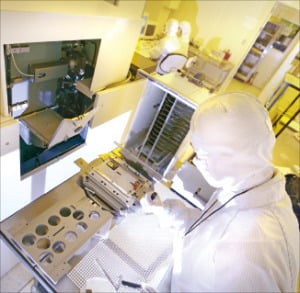- About
- Academics
-
Undergraduate Programs
- Civil and Environmental Engineering
- Architecture and Architectural Engineering
- Mechanical Engineering
- Industrial Engineering
- Energy Resources Engineering
- Nuclear Engineering
- Materials Science and Engineering
- Electrical and Computer Engineering
- Naval Architecture and Ocean Engineering
- Computer Science and Engineering
- Aerospace Engineering
- Chemical and Biological Engineering
-
Graduate Programs
- Civil and Environmental Engineering
- Architecture and Architectural Engineering
- Mechanical Engineering
- Industrial Engineering
- Energy Systems Engineering
- Materials Science and Engineering
- Electrical and Computer Engineering
- Naval Architecture and Ocean Engineering
- Computer Science and Engineering
- Chemical and Biological Engineering
- Aerospace Engineering
- Interdisciplinary Program in Technology, Management, Economics and Policy
- Interdisciplinary Program in Urban Design
- Interdisciplinary Program in Bioengineering
- Interdisciplinary Program in Artificial Intelligence
- Interdisciplinary Program in Intelligent Space and Aerospace Systems
- Chemical Convergence for Energy and Environment Major
- Multiscale Mechanics Design Major
- Hybrid Materials Major
- Double Major Program
- Open Programs
-
Undergraduate Programs
- Research
- Campus Life
- Communication
- Prospective Students
- International Office
Confronting Japan’s Export Restriction, SNU Helps Build Technological Self-Reliance in Small and Medium-Size businesses
-
Uploaded by
관리자
-
Upload Date
2019.10.21
-
Views
813
Confronting Japan’s Export Restriction,
SNU Helps Build Technological Self-Reliance in Small and Medium-Size businesses
Launch of a Special Technical Advisory Team
320 Professors from Engineering Colleges and Six Research Institutes Participate
Supporting R&D such as Semiconductors and Displays
Promoting Cooperation with Developed Countries like Germany.
"Protection of the Domestic Industry by Lowering Dependence on Japan."

A researcher from SNU College of Engineering, Department of Electrical and Computer Engineering experimenting in his lab. Source provided by SNU
SNU College of Engineering has newly set up a special technical advisory team to help small and medium-sized Korean businesses that are over-reliant on Japan's technology to become self-dependent. Some 320 professors and six research institutes from SNU will participate in providing wholesome and systematic support to the companies. While Japan's export regulations on Korea are becoming a reality, universities appear to be stepping up their efforts to protect the domestic industry. Analysts say with small and medium-sized companies lacking R&D (research and development) capabilities, collaborating with universities is now more important than ever before
.
Playing the role of helping small and medium-sized businesses to become technologically self-dependent
SNU College of Engineering announced on the 6th that it has newly formed a 'Materials, Parts, Equipment Special Technical Force (TF)’ under the SNU Engineering Consulting Center, an organization for industrial and academic technological cooperation.
TF will be responsible for working in collaboration with small and medium businesses in developing technologies and providing appropriate advice to them. SNU College of Engineering has set up TF because Japan's export regulations are expected to have a direct blow on Korea's small and medium-sized companies that are lacking in technical skills. "Unlike large companies, small and medium-sized companies often lack research personnel," said Kookheon Char, dean of SNU College of Engineering. "We have decided to create TF to minimize damage from Japan's economic retaliation through the help of 320 professors and their research institutes at SNU" he continued.
According to each industrial sector of △semiconductor △display △automotive △electronic △machinery and metals △chemical materials, TF is categorized into 6 groups of. In order to provide systematic and practical aid, six research institutes under the SNU College of Engineering will take charge of the respective industrial sectors. The Semiconductor Research Center is in charge of semiconductors and displays. The Advanced Automotive Research Center will be in charge of the automobile sector, the Automation and Systems Research Institute will be in charge of the electric and electronic sector, while the Institute of Chemical Processes will be in charge of the chemical materials technology. The machinery and metals sector will be led by two joint research institutes, the Research Institute of Advanced Materials and the Institute of Advanced Machines and Design. It is predicted that with TF at the center, cooperation between research institutes will be carried out whenever it seems necessary. In particular, TF plans to focus its efforts on developing the top 100 items that according to the government, 'needs to stabilize supply at an early stage’.

"In order to be self-reliant, the university also needs to be the ‘mediator’”
SNU College of Engineering plans to actively cooperate with other developed countries such as Germany in order to reduce its technological reliance on Japan. Since 2015, SNU Engineering Consulting Center has signed a Memorandum of Understanding (MOU) with Fraunhofer Research Institute in Germany to support small and medium-sized South Korean businesses with German technologies. "In the long run, we need to develop our own technology, however, in order to reduce our heavy dependence on one country in the short term, we also need to play our role as a “mediator” for technology using our university’s international networks," Dean Char said. "The SNU Engineering Consulting Center, which was established four years ago, has become experienced through the 1,600 cases of technology development and consulting. Recently, the TF team focused on materials, components and equipment that are urgently needed for development," he said.
Not stopping at SNU, KAIST launched a "Technical Advisory Group on Materials, Parts and Equipment" on August 5 to help local companies develop their technologies against Japan's economic retaliation. It is heard that about 100 professors of both former and current positions will be part of the Advisory Group of KAIST.